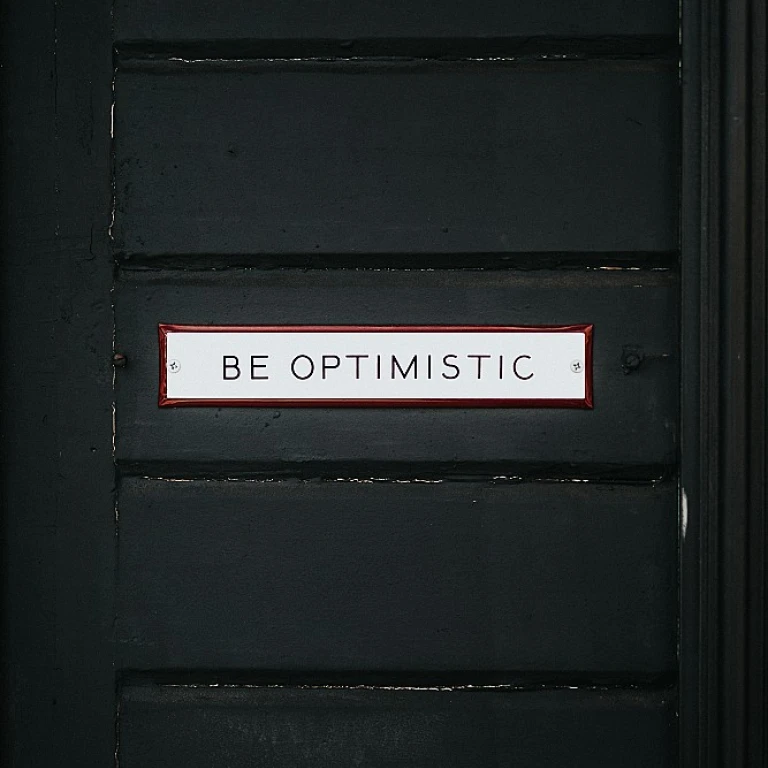
The Core Responsibilities of Hotel Housekeeping
Essential Duties for Hotel Housekeepers
In the hospitality industry, the housekeeping department plays a critical role in maintaining an impeccable guest experience. At its core, a housekeeper's job is focused on cleaning guest rooms and ensuring that all hotel areas meet established standards of hygiene and appearance. The housekeeping team is responsible for achieving daily tasks, including making beds, cleaning bathrooms, dusting, vacuuming carpets, and replenishing amenities. This ensures that guests feel welcomed and experience comfort throughout their stay. Housekeeping staff must efficiently manage their time to complete their workload within specific timeframes set by hotel management. They often work closely with the front desk and guest services to address specific requests or issues that arise during a guest's stay, which highlights the importance of exceptional customer service and communication skills. In addition to daily cleaning tasks, housekeepers are involved in maintaining inventory levels of cleaning supplies and suggesting needed replacements to the housekeeping manager. This requires attention to detail and strong organizational abilities. A comprehensive job description for hotel housekeeping staff also includes reporting maintenance issues, adhering to hotel policies, and supporting revenue management initiatives by ensuring rooms are ready for new arrivals promptly. For a deeper understanding of how these responsibilities fit into hotel operations, you might refer to a relevant job description.Skills and Qualities of an Effective Housekeeper
Attributes Needed for Success in Cleaning Operations
In the hotel industry, the housekeeping job is a pivotal role that directly influences guest satisfaction and the overall guest experience. To excel in this position, a hotel housekeeper needs not only to clean rooms efficiently but also to deliver a high level of service. Here are some of the essential skills and qualities that an effective housekeeper should possess:
- Attention to Detail: Housekeeping staff must maintain a sharp eye for detail while ensuring every part of the guest rooms meets high cleanliness standards. This attention helps uphold a hotel’s reputation and provides a welcoming environment for guests.
- Time Management: With multiple guest rooms to clean within a limited timeframe, housekeeping staff need strong time management to complete tasks without compromising quality. Effective time management contributes to more efficient cleaning processes and enhances guest turnover.
- Customer Service Skills: Interacting with guests directly or indirectly is a part of the housekeeping role. Therefore, housekeepers should demonstrate excellent service skills, ensuring guests feel comfortable and valued during their stay.
- Team Collaboration: Housekeeping is a team-based operation where cooperation with other staff members, including the front desk team and management, is crucial. Communication and collaboration cultivate a seamless workflow and better guest services.
- Physical Stamina: The physical demands of housekeeping work require endurance and strength. Housekeepers often spend their full time on their feet, engaging in repetitive tasks like lifting and pushing, making resilience a key quality.
Hotel housekeeping is more than just cleaning; it encompasses a set of competencies that facilitate efficient operations and guest satisfaction. As the housekeeping department aims to enhance the guest experience, developing and honing the right skills and qualities become crucial aspects of a housekeeper job and contribute significantly to the hospitality industry. For additional insights on how such roles are evolving within HR management, consider understanding the role of a chief people officer.
Challenges Faced by Housekeeping Staff
The Everyday Hurdles in Housekeeping
The role of housekeeping staff in a hotel environment is fraught with unique challenges that impact both the individual and the department as a whole. Understanding these obstacles is essential for improving guest satisfaction, enhancing the guest experience, and maintaining a productive housekeeping team. Housekeepers are tasked with cleaning guest rooms and common areas, often under time constraints that demand effective time management and attention to detail. Room turnover, which requires rooms to be cleaned and prepared for new guests promptly, can be a significant pressure point. This pressure is intensified during peak seasons when hotel occupancy is high, requiring more cleaning staff and sometimes resulting in longer workloads for each team member. The physical demands of the job description can also present challenges, with housekeepers often engaged in labor-intensive tasks. This, combined with the requirement for high-standard service skills, can lead to physical strain and fatigue over time. Ensuring that housekeeping staff have the necessary tools and training is crucial in maintaining their well-being and efficiency. Communication with the front desk is another aspect where challenges arise. Housekeeping teams need to coordinate closely with front desk managers to ensure the smooth transition of rooms and to address any guest complaints or special requests that may impact cleaning schedules. Moreover, housekeeping staff play a crucial role in influencing guest satisfaction, though they often work behind the scenes. Any mishap or delay in cleaning services can directly affect the guest's perception of the hotel and its customer service. In the realm of management, there is an increasing need for hotel housekeeping departments to adapt to technological advancements. Many are incorporating innovative tools such as human resources information systems to better manage staff schedules, track tasks, and monitor guest preferences. More information about the privacy code of conduct in HR information systems can help address concerns regarding employee data management. By addressing these challenges, hotels can ensure a more positive work environment for housekeeping staff, leading to improved guest experiences and, ultimately, better revenue management.The Role of HRIS in Managing Housekeeping Staff
Utilizing HRIS for Enhanced Housekeeping Management
In the hospitality industry, effectively managing a housekeeping team is crucial for ensuring guest satisfaction and maintaining high standards of service. A solid Human Resources Information System (HRIS) can play a pivotal role in streamlining the housekeeping department's operations and enhancing the efficiency of the entire hotel housekeeping process.
Firstly, an HRIS provides detailed job descriptions and tracks the specific responsibilities and skills of each housekeeper. This allows hotel managers to ensure that housekeeping staff possess the necessary cleaning and customer service skills to meet guest expectations consistently. By organizing these job roles and room assignments through an HRIS, the housekeeping department can maintain accountability and attention to detail, keeping guest rooms spotless and inviting.
Moreover, HRIS plays a significant role in time management by scheduling shifts and breaks efficiently. Housekeeping managers can utilize this system to monitor attendance and manage full-time and part-time housekeeping staff, ensuring that the right number of employees is available at necessary times. This helps in minimizing room turnaround time, which is a key factor in enhancing guest experience and satisfaction.
The role of an HRIS extends beyond just scheduling. It can also track the performance and development of housekeeping staff. By using the data collected over time, hotel managers can offer targeted training opportunities that align with the specific skills needed for the job. This leads to more effective service delivery and helps employees meet their professional development goals within the hospitality industry.
Revenue management is another crucial aspect where HRIS can prove beneficial. By integrating housekeeping operations with the front desk and other departments, hotels can ensure that rooms are cleaned and ready on time, preventing delays that can impact bookings and revenue turnover.
Overall, an HRIS can help bridge gaps in communication and coordination between the housekeeping team and the hotel management. By leveraging the full potential of HRIS, hotels can enhance the efficiency and satisfaction of both guests and employees, ensuring a seamless hospitality experience.
Training and Development Opportunities
Training and Development for Housekeeping Success
In the bustling world of hotel housekeeping, ongoing training and development are crucial for maintaining high standards and ensuring guest satisfaction. Housekeeping staff play an integral role in the overall guest experience, and their skills have a direct impact on the hotel's reputation and revenue management.
For those looking to excel in this field, acquiring and continuously improving essential service skills are key. Attention to detail, time management, and effective communication with both the housekeeping team and the front desk staff are vital elements of a successful housekeeper job. By honing these skills, housekeepers can ensure that guest rooms are not only clean but also presented in a manner that meets the high expectations of hotel guests.
Training programs should be designed to equip housekeeping staff with the necessary skills to perform their roles effectively. This includes detailed job descriptions, hands-on workshops, and simulations that focus on room cleaning techniques, use of cleaning equipment, and best practices in customer service. This hands-on experience is invaluable for building confidence and competency in handling daily housekeeping tasks.
Moreover, the hospitality industry continually evolves, with new cleaning technologies and strategies emerging over time. Therefore, ongoing professional development opportunities are essential. Regular workshops, seminars, and online courses can keep hotel housekeeping staff updated on the latest industry trends and innovations, enhancing their service skills and the overall guest experience.
Finally, support from management is critical in facilitating a positive learning environment. Hotel management and housekeeping managers should actively encourage the growth and development of their team members, fostering a culture of excellence and a commitment to high standards in service. Through a supportive and proactive approach to training and development, housekeeping departments can significantly contribute to the success and reputation of their hotels.
Future Trends in Hotel Housekeeping
Evolving Trends Shaping Hotel Housekeeping
The hospitality industry is continually evolving, and hotel housekeeping is no exception. As guest expectations become more sophisticated, so too must the housekeeping department adapt to meet these demands. With a focus on enhancing guest satisfaction and operational efficiency, several key trends are reshaping the role and responsibilities of those within the housekeeping team.- Sustainability Initiatives: Guests are increasingly conscious of their environmental footprint, and hotels are responding by integrating sustainable practices into housekeeping operations. This includes using eco-friendly cleaning products, minimizing water usage, and implementing efficient laundry protocols to reduce the ecological impact of guest rooms.
- Technology Integration: Advances in technology are transforming housekeeping roles. The use of management software and apps to track and manage cleaning schedules allows staff to prioritize tasks and enhance time management. Innovations such as smart room sensors can alert housekeepers when a room is vacant, optimizing cleaning time and improving overall service efficiency.
- Focus on Personalized Guest Experience: Personalization is a driving force in the hospitality industry. Housekeeping staff are increasingly trained to recognize and cater to the individual preferences of guests, enhancing the overall guest experience. This can range from adjusting room amenities to suit specific needs to providing personalized housekeeping services during the guest's stay.
- Enhanced Training Programs: With the inclusion of specialized workshops focusing on service skills and attention to detail, training programs are now designed to equip housekeeping staff with the latest skills hotel demands. Continuous development opportunities ensure they deliver exceptional service, maximizing guest satisfaction and operational standards.












